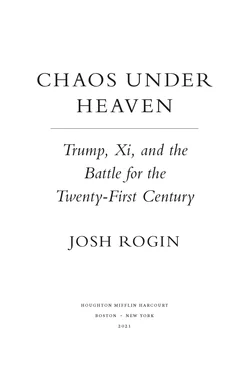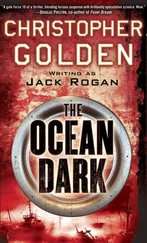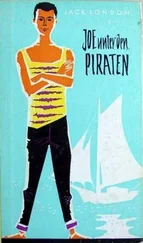Thanks in part to Garnaut’s efforts, Australia had become aware of the CCP’s comprehensive and well-funded United Front program—work that is still described by Chinese leaders in Maoist terms: to mobilize the party’s friends to strike at the party’s enemies. Garnaut became immersed in Chinese interference efforts and the United Front while working in the Australian government as a foreign policy adviser and speechwriter for Prime Minister Malcolm Turnbull. While journalists like Nick McKenzie and scholars like Clive Hamilton were waking up the public and building political pressure, Garnaut was working inside the Australian government to carry out a classified study on foreign interference that eventually led to counter-foreign interference legislation.
Now Pottinger wanted America to experience a wake-up call of its own. Over the course of 2017, he and Garnaut began sharing documents government to government—and using them to inform Trump’s policies. “It was about introducing all US officials to the idea of the United Front and what is the United Front and what the hell is this stuff?” Pottinger said later about his collaboration with Garnaut. “It’s stuff Americans haven’t had to think about.”
The United Front
The issue of foreign governments’ influence operations inside the United States is difficult to talk about, because it’s designed to be difficult to talk about. It exists in a gray middle ground somewhere between overt soft power, propaganda, and espionage. It entails activities that are public in a sense but that conceal a covert purpose. They are meant to influence the domestic political and elite conversation about foreign policy without coming out and stating as much. This is why they are malign. This is why they are dangerous.
The Russian effort to interfere in the 2016 American presidential election gave most Americans a general understanding and awareness of how Moscow’s influence operations work—lots of state-run propaganda mixed with internet campaigns run by troll armies on Twitter and fake Facebook groups. Moscow’s chief goal is to sow chaos into our political discussion and divide and inflame the democratic process in any way possible, to undermine the integrity of our system. In 2016, Russia could best achieve this by supporting Trump and attacking Hillary Clinton. But the truth is, Moscow played both sides at various times for sport and mischief.
The Chinese government’s influence campaign inside the United States is a totally different animal. It’s a long-term project based on developing relationships over time with elites and interest groups the CCP believes it can leverage. It’s quiet, operating slowly and planting a thousand flowers that might bloom later. The scale is massive, involving huge networks of proxies funneling billions into the political systems in foreign countries around the world. And it’s highly coordinated, led by a part of the party that dates back to Mao: the United Front Work Department.
The CCP’s United Front Work Department leads and oversees the party’s efforts to snuff out criticism and promote the party’s interests both inside and outside China. Mao wrote in 1939, “Our eighteen years of experience show that the united front and armed struggle are the two basic weapons for defeating the enemy.” And at the 2015 Central United Front Work Meeting, Xi himself harked back to this metaphor when he said, “The United Front . . . is an important magic weapon for strengthening the party’s ruling position . . . and an important magic weapon for realizing the China Dream of the Great Rejuvenation of the Chinese Nation.”
The “magic weapon” that is the United Front Work Department is part of a broader program of Chinese international influence. Indeed, various parts of the party and Chinese government system engage in conduct that is defined as “united front work,” which the Central Intelligence Agency defined in the 1950s as “a technique for controlling, mobilizing, and utilizing non-communist masses.” For the party, it’s not enough to quash dissent among its own population. Public opinion needed to be shaped for anyone who is not in the party, in every country, if possible.
The fact that united front work is conducted outside China shows that Chinese leaders are lying when they say they have a policy of noninterference in other countries’ affairs. China has influence operations connected to the united front system in dozens of countries around the world. Those countries closer to China, like Australia, have been working on identifying and countering united front efforts for many years.
Australian researchers were ahead of their American colleagues in identifying how the United Front operated and why it was dangerous. “The united front system’s reach beyond the borders of the People’s Republic of China (PRC)—such as into foreign political parties, diaspora communities and multinational corporations—is an exportation of the CCP’s political system,” wrote Australian researcher Alex Joske in a report about united front work for the Australian Strategic Policy Institute. “This undermines social cohesion, exacerbates racial tension, influences politics, harms media integrity, facilitates espionage, and increases unsupervised technology transfer.” United Front groups, Joske stated, are involved in scientific relationships and run Confucius Institutes on foreign campuses, and the United Front Work Department in particular plays a central role in coordinating the CCP’s policy on Xinjiang—the northwestern Chinese province where the CCP was viciously repressing a variety of minority ethnic groups, to the horror of most of the international community. The efforts of these united front groups are directed at all non-party members, whether they be Chinese citizens, overseas Chinese, or you and me.
The CCP conducts united front work in American universities, in American media, on Wall Street, in Washington think tanks, and through a vast network of “civil society” groups that are propped up by Chinese government money while acting as if they were grassroots organizations. This is what FBI director Christopher Wray was talking about when he testified to the Senate Intelligence Committee in February 2018: “One of the things we’re trying to do is view the China threat as not just a whole-of-government threat, but a whole-of-society threat on their end. And I think it’s going to take a whole-of-society response by us.”
“Building the Plane”
Through the process of drafting new US policy documents about the path forward vis-à-vis China, Pottinger pushed each part of the bureaucracy to challenge its long-held assumptions about China and the bilateral relationship. Each classified document began with a section that revisited old assumptions and, if needed, replaced them with new ones. Was the US goal still to entice China to adopt a political system that mimicked America’s own? Pottinger believed it had become obvious that this was not where China was going, and that America’s leadership had to acknowledge that fact and make decisions accordingly. “A lot of thinking had gotten stale and entrenched in many parts of the bureaucracy, not just the State Department,” he said. “We were trying to pull people back from this narcissistic, solipsistic view that we have as Americans where we think everyone wants to be like us and we’ve got the power to make them into us.”
Some journalists will tell you that, when it comes to the Trump administration, the official papers and strategy documents didn’t mean anything. Trump didn’t read them. The big decisions were made at the political level and the “strategies” were just busywork for the eggheads. But that misses the point. Two or three levels down, in agencies around Washington and around the country, there were fights over China policy going on every day that never reached the White House and never made the news. But in each of these nooks and crannies inside the national security system, there was a China hardliner who had lost battle after internal battle, probably throughout their career. By rewriting the official policy documents and getting Trump to sign them, Pottinger was empowering these officials and giving them ammo for their fights.
Читать дальше











